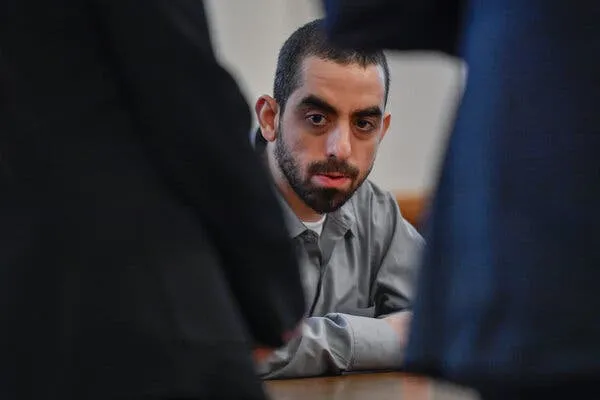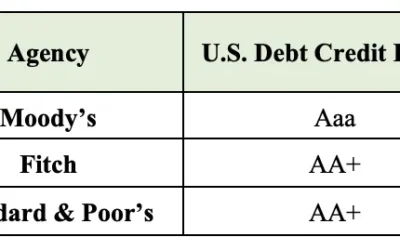In a landmark verdict that reverberates across literary circles and echoes in the realm of free speech advocacy, Hadi Matar has been sentenced to 25 years in prison for the brutal stabbing of renowned author Salman Rushdie. This sentence, handed down by a New York state court, marks a significant moment not only in the life of Rushdie but also in the ongoing dialogue about the limits of expression and the volatile intersection of art and politics.
On August 12, 2022, Salman Rushdie was in the midst of a literary event at the Chautauqua Institution in western New York when Matar rushed onto the stage and assaulted him. The attack left Rushdie with multiple stab wounds, severely injuring his neck and abdomen. The incident shocked the world, igniting fervent debates over the boundaries of art and the threats posed by extremist ideologies.
Hadi Matar, a 24-year-old individual, was promptly arrested at the scene and would later face multiple charges including attempted murder and assault. Speaking at his sentencing, the judge characterized Matar’s actions as an attack on a fundamental tenet of democracy—the freedom of expression.
The Context of the Attack
The roots of the animosity that led Matar to commit this heinous act can be traced back to Salman Rushdie’s novel, The Satanic Verses, published in 1988. This controversial work, which critiques and explores themes of religion and identity, triggered a widespread backlash among some Muslim communities worldwide. The late Iranian leader Ayatollah Khomeini famously issued a fatwa calling for Rushdie’s assassination, branding the book blasphemous. Since then, Rushdie has lived under the shadow of this edict, forcing him into hiding for nearly a decade.
In the decades following the fatwa, Rushdie has remained an outspoken advocate for freedom of expression. His novels have captivated readers and his essays have challenged societal norms, making him a symbol of resistance against censorship.
A Reaction from the Literary Community
The literary world, grappling with the harrowing reality of violence against writers, reacted with widespread condemnation of the attack. Authors, activists, and free speech advocates expressed their shock and outrage, using Rushdie’s situation to highlight the increasing threats faced by those who dare to voice dissenting opinions.
Author Stephen King took to social media, stating, “An attack on one is an attack on all. We must stand strong against those who seek to silence us.” Similarly, celebrated author Margaret Atwood weighed in, emphasizing the critical need for protecting free speech rights and the safety of writers.
Legal Proceedings and Sentencing
The legal proceedings against Hadi Matar unfolded with significant media attention. The attack was condemned not just as an assault on Rushdie, but as a broader attack on artistic expression itself. Throughout the trial, Matar’s defense brought various arguments to bear, attempting to navigate the complex terrain between personal, ideological, and cultural motivations behind his actions.
However, the prosecution successfully framed Matar’s actions within the context of premeditated violence, arguing that the attack was far more than a mere impulsive act. The overwhelming evidence, including Matar’s own statements and social media activities, painted a vivid picture of a young man who had been deep in extremist ideology.
During the sentencing hearing, the judge made it clear that a sentence of 25 years was not simply a consequence of Matar’s actions but a necessary statement against violence in the name of ideology. “This court will not tolerate acts of violence against those who choose to express their thoughts, no matter how contentious,” the judge said firmly.
Broader Implications for Freedom of Expression
Rushdie’s attack and the subsequent sentencing of Matar surface critical discussions surrounding the state of free speech, especially in a world where digital platforms amplify both ideologies and incitements to violence. The chilling effects that come with such attacks raise concerns over self-censorship among artists, writers, and thinkers. Fear of retribution can stifle creativity and debate, and the Rushdie case exemplifies the dire consequences of allowing fear to dictate discourse.
Organizations like PEN America, which fights for the rights of writers and freedom of expression, have closely monitored the case and used it to campaign for safer environments for writers. “We must unite to ensure that the Matar case is an anomaly, not the new norm,” said PEN America CEO Suzanne Nossel in a statement.
Salman Rushdie’s Recovery Journey
Following the attack, Rushdie endured a lengthy recovery, both physically and psychologically. Having faced life-threatening injuries, the renowned author has demonstrated remarkable resilience. After his initial surgery and rehabilitation, Rushdie began to speak publicly again, reaffirming his commitment to free speech and literature.
In an interview shortly after the incident, Rushdie spoke candidly about the impacts of the attack, stressing that it had not diminished his commitment to writing. “They cannot silence me,” he declared, embodying the very essence of a defiant spirit that has characterized his journey as an author.
The Fight for Artistic Freedom Continues
The sentencing of Hadi Matar serves as a pivotal moment in reaffirming societal commitments to free speech and artistic expression. Yet, the battle is far from over. The complexities surrounding cultural and religious sensitivities will continue to present challenges for artists who dare to explore contentious subjects.
As we look ahead, the need to cultivate an environment where diverse voices can flourish without fear of violence becomes ever more critical. The case of Salman Rushdie underscores the necessity for robust legal protections and an unwavering societal commitment to uphold the principles of freedom of expression.
Conclusion
The 25-year sentence imposed on Hadi Matar sends a resounding message about the unacceptability of violence against individuals who engage in creative expression. As Salman Rushdie continues to reclaim his voice in a world fraught with challenges, his resilience serves as both inspiration and a call to action. Authors, artists, and all those in the sphere of creative expression must join forces in promoting discourse over violence, standing firm against censorship in all forms.
In the end, the pen will remain mightier than the sword, and the indomitable spirit of writers like Rushdie keeps the flame of freedom burning bright.







